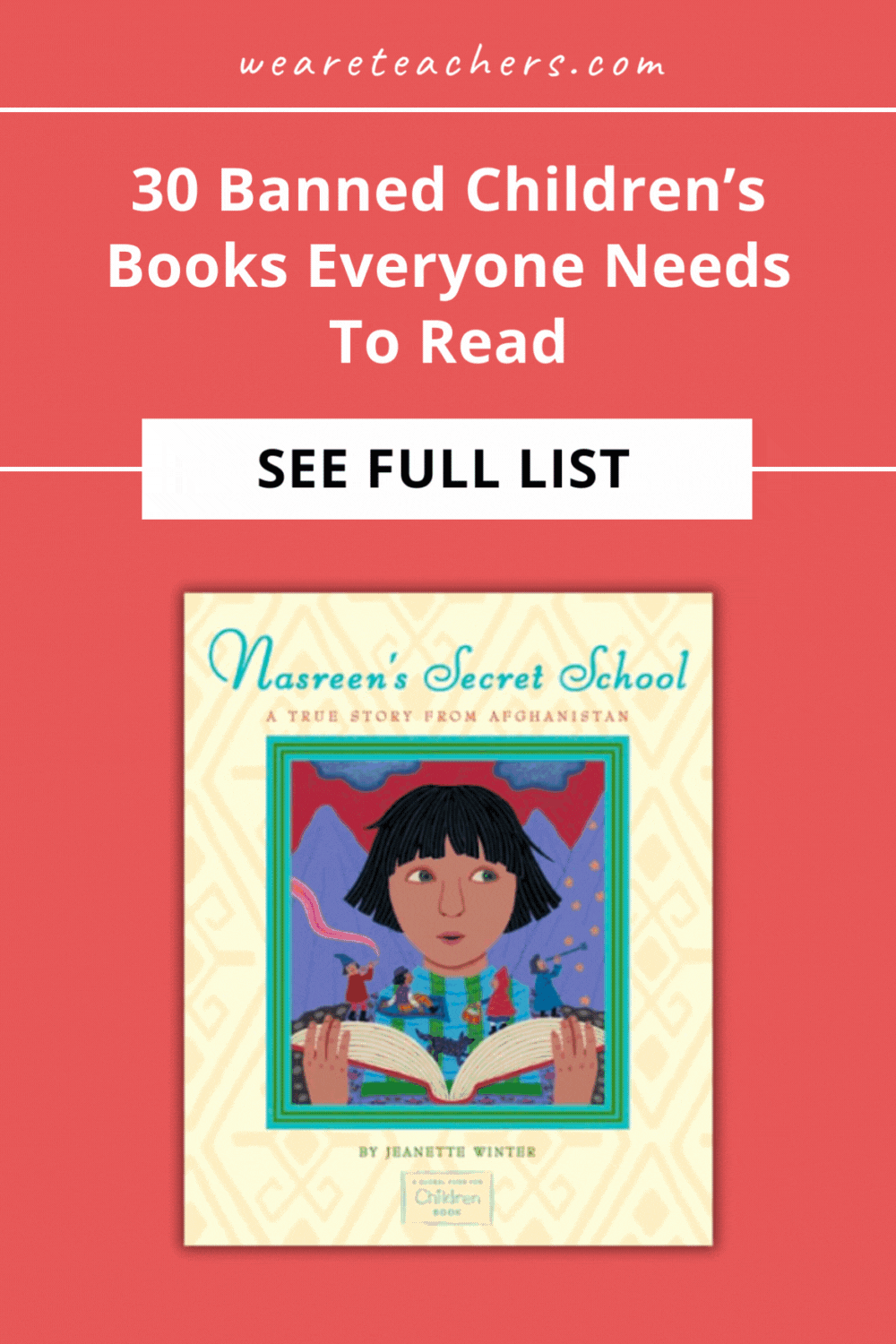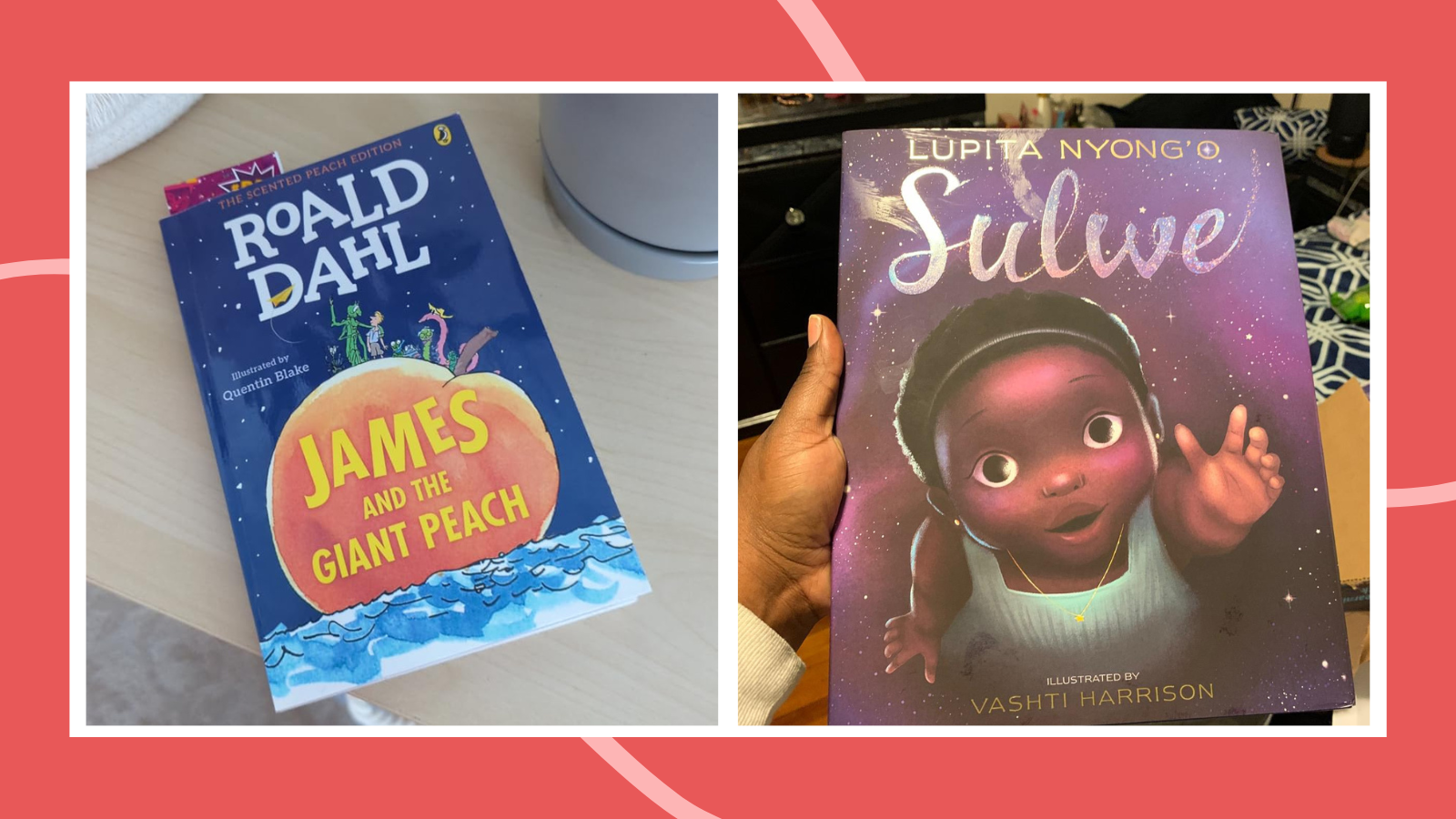The data on banned children’s books (and books for all ages) speaks for itself. The American Library Association (ALA) Office for Intellectual Freedom tracks and reports on book challenges and bans each year in the United States. In the first eight months of 2023, the ALA reported challenges to a whopping 1,915 individual titles. They noted an especially disturbing increase in efforts to censor multiple books; in this reporting period, the ALA noted challenges to lists of over 100 titles at once in 11 states. According to PEN America, Florida topped the charts for school book bans during the 2022-2023 school year with 1,406 bans, surpassing previous front-runner Texas.
The titles challenged or banned most frequently are those alleged to include sexual content, especially LGBTQ+ themes, and books by and about people of color. This is alarmingly problematic for today’s children, who desperately need these titles as both mirrors and windows.
Banned children’s books deserve a spotlight in classrooms and school libraries all year long. (The ALA does sponsor Banned Books Week each year in early fall, which is a great nudge to gather more resources or start new school traditions around banned children’s books.) The list of challenged and banned children’s books crucial to share with kids is (unfortunately) ever growing and changing, but these titles are a great place to start.
Banned Children’s Books: Picture Books
Many of these titles are worth sharing with kids of all ages! Even older students can appreciate and gain lots from a compelling picture book read aloud.
1. In the Night Kitchen by Maurice Sendak
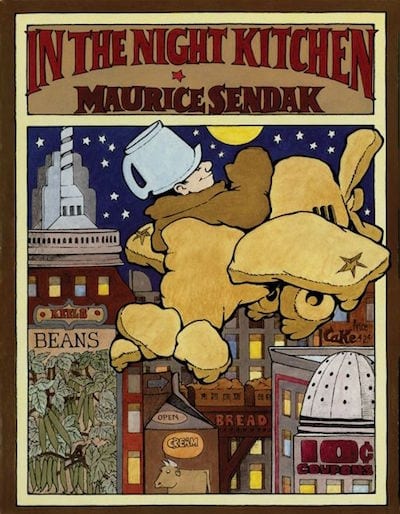
Little Mickey tries to help the night bakers find their missing milk. He ends up falling into the cake and experiencing a fantastic adventure.
Why it’s been challenged
This picture book by the creator of the children’s classic Where the Wild Things Are (also challenged in some places for being too dark or potentially traumatizing) raised complaints for decades for depicting a child’s bare bottom in one illustration.
Why kids should read it
Sendak’s distinct and artistic storytelling style shows respect for the deeply emotional and imaginative worlds of children. Children deserve this serious attention and recognition while exploring the worlds of their own imaginations. Plus, this story is perfect for inspiring kids to write their own magical recipes! And the book was awarded the Caldecott Honor in 1971.
Buy it: In the Night Kitchen on Amazon
2. And Tango Makes Three by Justin Richardson and Peter Parnell
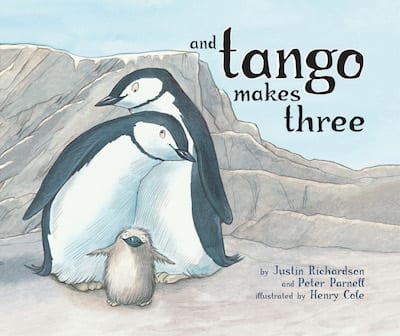
Two male penguins, desperate to start a family of their own, adopt an egg to hatch.
Why it’s been challenged
This title often lands on top of banned book lists because it features a same-gender relationship.
Why kids should read it
This book affirms the family structure of so many children with same-sex parents, and sensitively addresses the questions of what constitutes a family for all kids.
Buy it: And Tango Makes Three on Amazon
3. My Moms Love Me by Anna Membrino
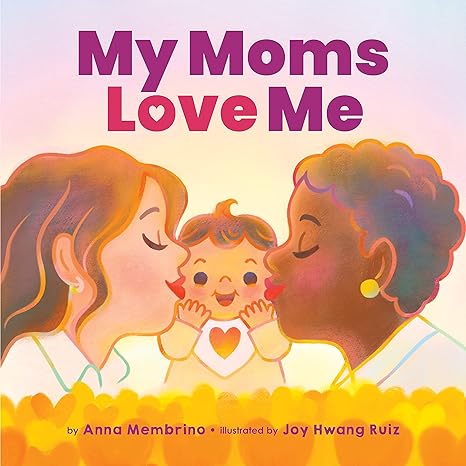
Mommy and Mama each take care of their sweet baby in different ways, always with joy and love.
Why it’s been challenged
Various groups oppose this title’s same-sex parent protagonists.
Why kids should read it
This is simpler text than the classic (and also often-censored) Heather Has Two Mommies by Leslea Newman, making it perfect for celebrating two-mom families in very young classrooms. It’s an inclusive addition to any collection of books about families.
Buy it: My Moms Love Me on Amazon
4. Strega Nona by Tomie dePaola
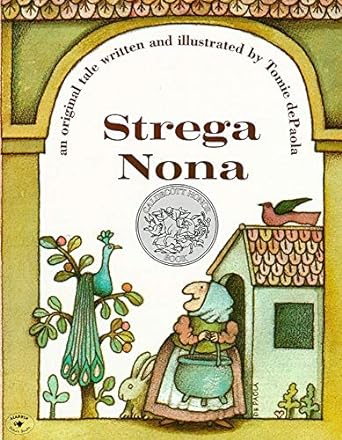
When local witch and healer Strega Nona hires Big Anthony as her assistant, she warns him never to touch her magic pasta pot. Of course, he can’t resist and ends up in a hilariously urgent overflowing pasta mess.
Why it’s been challenged
Some groups complain that this story portrays witchcraft in a positive light.
Why kids should read it
Generations of children love this childhood classic. Classrooms can use it to start conversations about problem and solution story structure, or visualizing while reading. Plus, it can launch discussions about why it’s important to follow the rules.
Buy it: Strega Nona on Amazon
5. Julián Is a Mermaid by Jessica Love
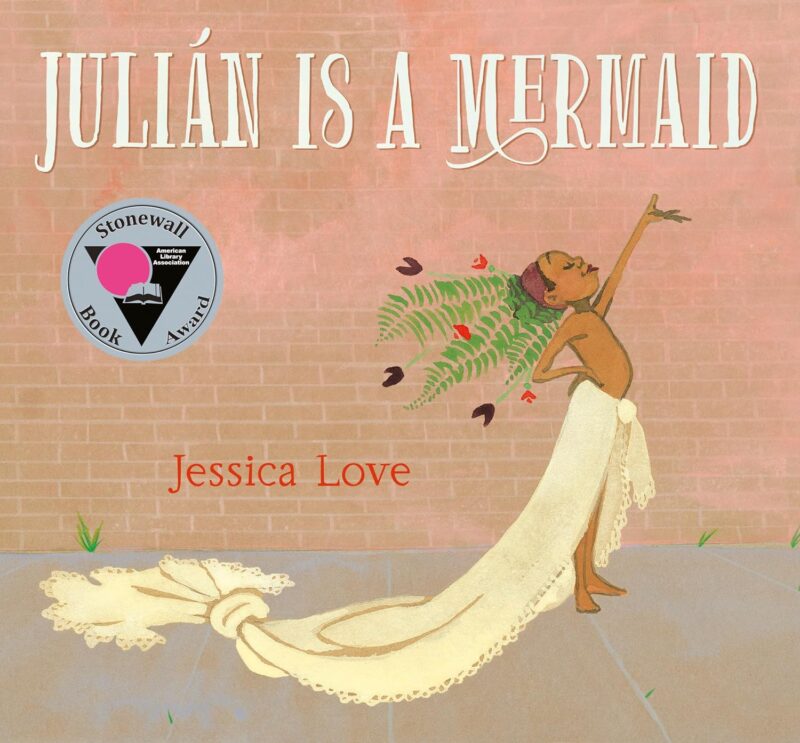
Young Julián longs to be a mermaid after seeing a group of people dressed up on the subway. He worries what his grandmother will think when he makes a big mess putting together the perfect costume. To his delight, she celebrates his efforts and even takes him on an adventure to show off his new look.
Why it’s been challenged
Among others, a parent group from a school district in Connecticut sought to remove this book from the curriculum. They said it included inappropriate themes about gender identity.
Why kids should read it
This mostly wordless, affirming title offers many levels to appreciate. For young children, it can simply be a story that encourages a feeling to explore who you want to be. It can also spark compelling conversations about acceptance and characters’ responses to events. Abuela could definitely have scolded Julián for his mess-making, yet she decided to react differently. Why?
Buy it: Julián Is a Mermaid on Amazon
6. Sulwe by Lupita Nyong’o
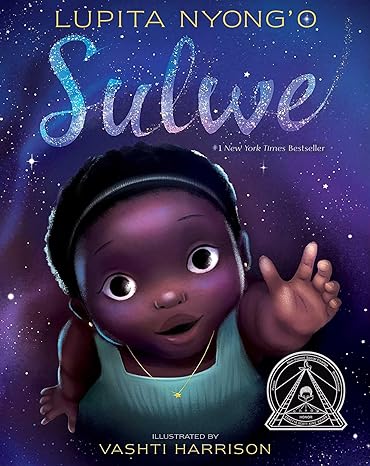
Sulwe worries about how her midnight-black skin is darker than others’ around her. A magical journey changes her thinking. The author’s note describes her own personal journey to accept the beauty of her dark skin.
Why it’s been challenged
Inclusion of racial themes landed this book on the list of 176 titles removed “for review” from a district-wide purchase of diverse books in Duval County, Florida, in 2022. (The Florida Freedom to Read Project dives into this controversy in great detail.)
Why kids should read it
Besides honoring many kids’ experiences questioning their own skin color, this story’s messages of self-discovery and self-acceptance can apply to so many situations. Plus, the illustrations are absolutely breathtaking. This book is a true work of art.
Buy it: Sulwe on Amazon
7. The Family Book by Todd Parr
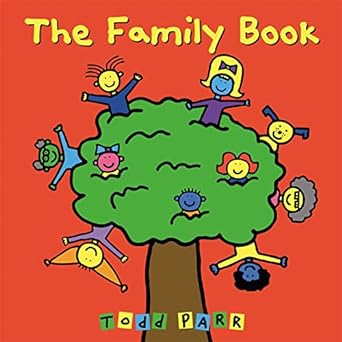
Each colorful spread shares an example of family structure or circumstance, from straightforward to silly.
Why it’s been challenged
Parents and other groups object to the page of this book that reads, “Some families have two moms and two dads,” saying it encourages a homosexual lifestyle.
Why kids should read it
This early childhood classroom staple encourages kids to think widely and inclusively about what makes a family. Its cheerful, simple illustrations encourage kids to proudly talk about their own families and learn about others’.
Buy it: The Family Book on Amazon
8. This Day in June by Gayle E. Pitman
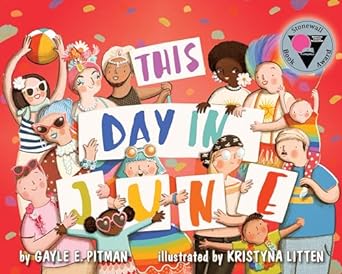
This rhyming story takes young readers to a lively gay pride parade. The back matter gives lots of resources for adults about helping kids build appreciation for LGBTQ+ history and culture.
Why it’s been challenged
Families and public library patrons challenged this book numerous times for its LGBTQ+ themes and illustrations.
Why kids should read it:
There’s so much for young readers to notice in the joyful illustrations. This ultra-positive book does an excellent job conveying the love and celebration at a pride parade.
Buy it: This Day in June on Amazon
9. Prince & Knight by Daniel Haack
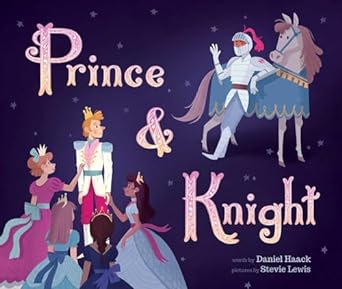
A king and queen look endlessly for a bride for their son, but the prince dreams of marrying someone different. When a brave knight saves him from a fearsome dragon, he falls in love with him.
Why it’s been challenged
Opponents object to this book’s portrayal of gay fairy tale characters.
Why kids should read it
Traditional fairy tales often focus on heterosexual love stories. This title inclusively expands the canon for any classrooms exploring the fairy tale genre.
Buy it: Prince & Knight on Amazon
10. Lailah’s Lunchbox: A Ramadan Story by Reem Faruqi
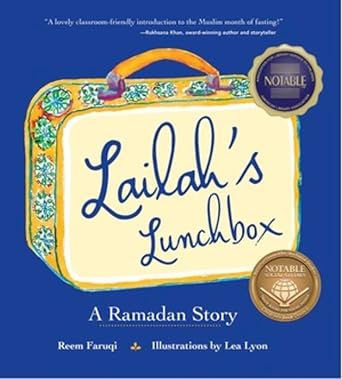
Lailah feels proud and excited to be old enough to fast during Ramadan, but she isn’t sure how to explain the practice to her classmates and teacher—or what to do during school lunchtime. The school librarian becomes an encouraging ally. The author’s note explains how her childhood experiences inspired this story.
Why it’s been challenged
School libraries in various Florida counties removed this title for its Islamic themes.
Why kids should read it
This story portrays the realistic experiences of a child navigating celebrating their family’s religious traditions while attending school. It can affirm the experiences of Muslim students who observe Ramadan, and educate other students about this holiday.
Buy it: Lailah’s Lunchbox: A Ramadan Story on Amazon
11. Nasreen’s Secret School: A True Story From Afghanistan by Jeanette Winter
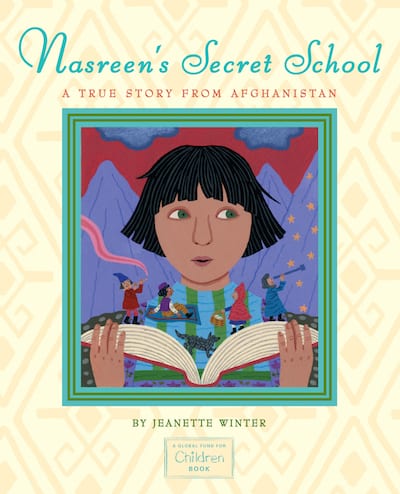
This inspiring book is about a grandmother who enrolls her granddaughter in a secret school for girls in Afghanistan.
Why it’s been challenged
Complaints against this title include an alleged religious viewpoint and violent content.
Why kids should read it
It affirms the life-changing power of education that many Western students may take for granted.
Buy it: Nasreen’s Secret School: A True Story From Afghanistan on Amazon
12. When Aidan Became a Brother by Kyle Lukoff
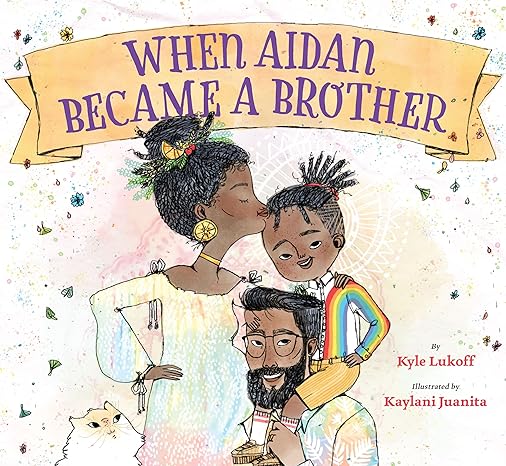
After Aidan’s experience coming out as a trans boy, he worries about how to be the best sibling to his family’s new baby. He wants the new baby to have freedom to express their gender. It turns out, of course, that Aidan knows exactly how to be a great brother: Show lots of love.
Why it’s been challenged
Groups object to the portrayal of a transgender boy in this story.
Why kids should read it
This story shows how a trans child might experience the common childhood transition of becoming a sibling. It also gently challenges societal habits of gender assumption. (For instance, Aidan feels uncomfortable with constant questions like “Is it a boy or a girl?” and prefers “It’s a baby!”)
Buy it: When Aidan Became a Brother on Amazon
13. Encounter by Brittany Luby
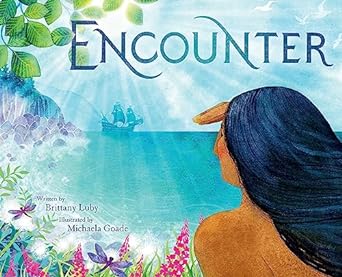
This story details an imagined friendly “encounter” between a European explorer and an indigenous fisher.
Why it’s been challenged
Schools in Duval County, Florida, removed this title “pending review,” presumably for its inclusive historical perspective. (The Florida Freedom to Read Project dives into this controversy in great detail.)
Why kids should read it
This book is a shining example of re-imagining the mainstream version of history using primary sources. The author’s note explains how learning in school that Jacques Cartier “discovered” parts of North America conflicted with her indigenous family’s history and experiences. The historical note shares more detail about how notes kept by Cartier formed the basis of the story.
Buy it: Encounter on Amazon
14. Pride: The Story of Harvey Milk and the Rainbow Flag by Rob Sanders
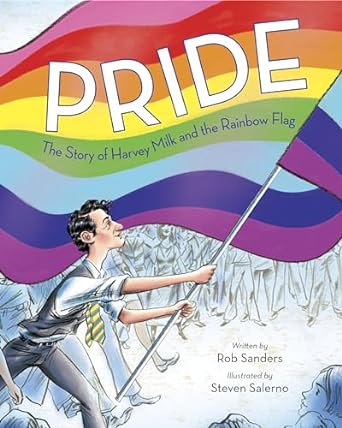
Harvey Milk was one of the first openly gay people voted into political office. He was a social activist in San Francisco, remembered as the creator of the first rainbow flag in 1978. This book tells his story, and about how the legacy of the rainbow flag continued after his assassination.
Why it’s been challenged
A parent in Virginia complained about this book, calling it too “controversial.” The National Coalition Against Censorship wrote a letter supporting the teacher who shared the book in class.
Why kids should read it
This engaging nonfiction picture book helps students appreciate the rainbow flag as an important worldwide symbol for equality, hope, and love. It’s an important title for building background knowledge about civil rights.
Buy it: Pride: The Story of Harvey Milk and the Rainbow Flag on Amazon
15. Separate Is Never Equal: Sylvia Mendez & Her Family’s Fight for Desegregation
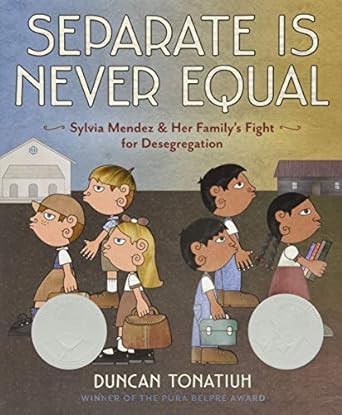
Sylvia Mendez and her family fought against the mandate that she and her brothers must attend the Mexican school in 1940s California, ultimately ending school segregation in California years ahead of Brown v. Board of Education.
Why it’s been challenged
Among other instances, a parent and Moms for Liberty group member in Tennessee took offense to the book’s “contemporaneous quotes from White segregationists in court.” This was part of a list of book challenges based on the idea that learning about racism is too much for children to handle.
Why kids should read it
This engaging book details a key historical event as children learn about civil rights.
Buy it: Separate Is Never Equal on Amazon
16. I Am Jazz by Jessica Herthel and Jazz Jennings
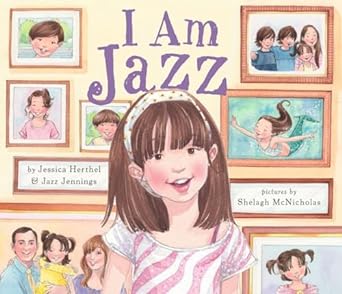
Jazz Jennings knew as a toddler that she had a girl’s brain in a boy’s body. This important book shares her experience as a transgender individual with young readers.
Why it’s been challenged
This book tied for the most-often banned children’s book in 2022, according to PEN America. Opponents object to its portrayal of a transgender child.
Why kids should read it
Kids need to hear straightforward stories of transgender children being accepted and understood by their families. This title can also serve as an introduction to Jazz Jennings’ work as an LGBTQ+ activist.
Buy it: I Am Jazz on Amazon
17. The 1619 Project: Born on the Water by Nikole Hannah-Jones and Renée Watson
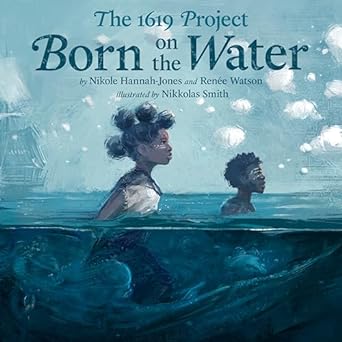
This book provides a lyrical account of the experience of African people ripped from their home and sold as slaves.
Why it’s been challenged
School districts in multiple states banned or challenged this book because they think it teaches critical race theory.
Why kids should read it
This title is so eloquent. It gives both kids and adults essential language for understanding the slave experience as a human experience.
Buy it: The 1619 Project on Amazon
Banned Children’s Books: Graphic Novels
Kids love graphic novels! Their artwork gives kids another means to build understanding as they read.
18. The Adventures of Captain Underpants by Dav Pilkey
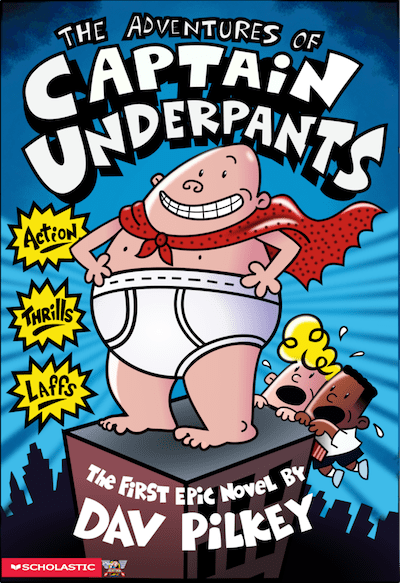
This bestselling graphic novel series uses bathroom humor to get laughs.
Why it’s been challenged
Critics claim children should not read this series due to offensive language and violence.
Why kids should read it
A well-established kid favorite, especially for those with learning and attention issues, this series will keep reluctant readers engaged and wanting more. While silly, it also demonstrates the qualities of a superhero and good friend.
Buy it: The Adventures of Captain Underpants on Amazon
19. New Kid by Jerry Craft
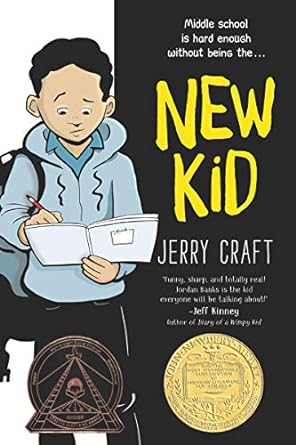
This graphic novel series opener stars 7th grader Jordan. He’s an aspiring artist and a black “new kid” at a mostly white private school.
Why it’s been challenged
Opponents of this title have accused it of teaching critical race theory.
Why kids should read it
Craft’s graphic novels do an excellent job portraying relatable, everyday experiences of kids of color. (Proof: This title was the first graphic novel ever to win the Newbery medal!) They are perfect examples of how graphic novels can be both accessible and thought-provoking for all kids.
Buy it: The New Kid on Amazon
20. When Stars Are Scattered by Victoria Jamieson and Omar Mohamed
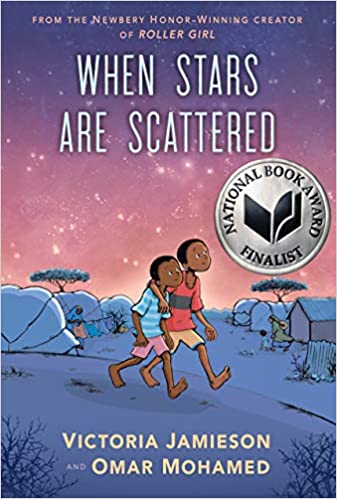
This true story tells what it’s like to grow up in a refugee camp. Omar and his brother have spent so much time waiting for life to change. When Omar has the chance to go to school, he has to wrestle with how to also care for his younger brother.
Why it’s been challenged
Parents in various school districts challenged this book for objectionable content.
Why kids should read it
All kids need to read this deeply moving memoir. Yes, it includes heartbreak. But the storytelling is sensitive and an important glimpse into the reality of so many.
Buy it: When Stars Are Scattered on Amazon
21. The Breakaways by Cathy G. Johnson
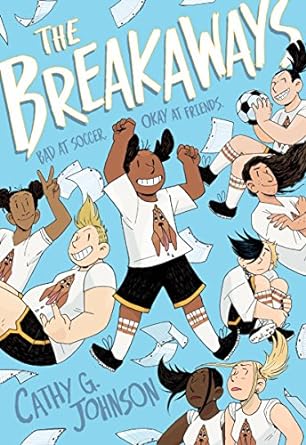
Faith tries to find her place in middle school by joining the soccer team and ends up learning about lots more than soccer. This graphic novel will especially speak to kids who are still trying to figure out who they (and their friends) are. (Basically, all middle schoolers!)
Why it’s been challenged
Critics oppose LGBTQ+-related details in the story.
Why kids should read it
This graphic novel captures the complexity of middle school friendships and struggles, as well as how being a member of a team is often about way more than sports. It gives middle-grade readers lots to think and talk about.
Buy it: The Breakaways on Amazon
22. Drama by Raina Telgemeier
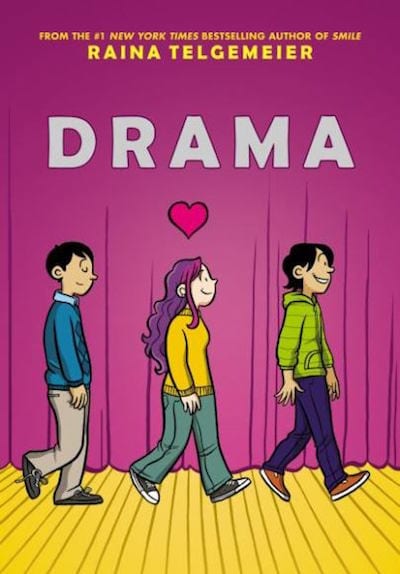
This Stonewall Honor Award–winning graphic novel portrays the questions and confusion of middle school relationships, presenting a positive experience of coming out to friends.
Why it’s been challenged
This is one of the more often-challenged or banned children’s books in school libraries for its portrayal of LGBTQ+ relationships.
Why kids should read it
This popular graphic novel is highly relatable for middle school kids. Graphic novels by Raina Telgemeier often encourage reluctant readers to engage with books.
Buy it: Drama on Amazon
Banned Children’s Books: Middle Grade Novels
These outstanding middle grade novels encourage kids to think and learn about different perspectives and emotional experiences.
23. Bridge to Terabithia by Katherine Paterson
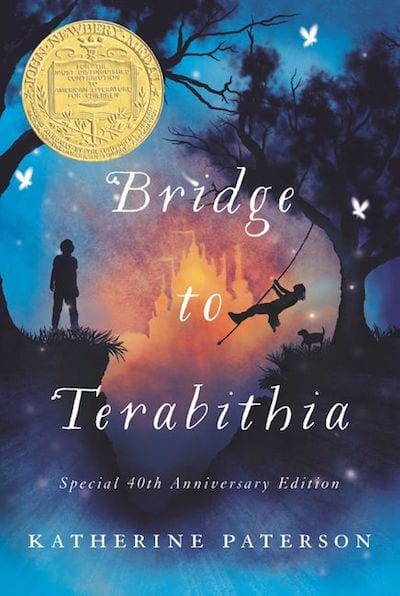
Fifth grader Jess creates an imaginary world with his best friend, Leslie. He then deals with her sudden death in this Newbery Medal–winning novel.
Why it’s been challenged
One of the more frequently banned children’s books, critics accuse it of having offensive language, references to religion and atheism, and claims that it promotes the occult.
Why kids should read it
This perceptive and moving novel teaches kids about unconditional friendship and how to cope with loss. The characters and story stay with students long after they have finished reading it; this is a book that kids never forget.
Buy it: Bridge to Terabithia on Amazon
24. James and the Giant Peach by Roald Dahl
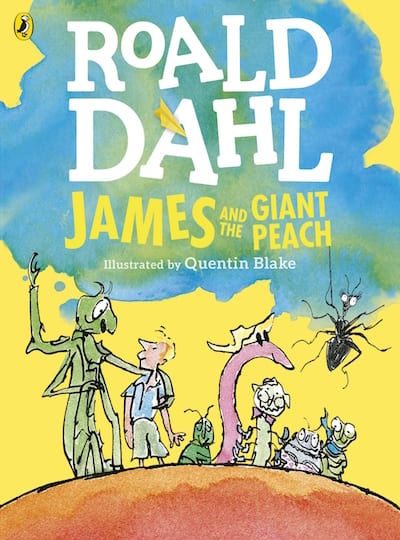
The story follows an abused young boy who magically travels with a group of talking insects inside a giant peach to New York City.
Why it’s been challenged
Since its publication in 1961, critics raised flags about the story’s mysticism, promotion of disobedience, references to tobacco and alcohol, and for being too scary for children. Roald Dahl has several other classic banned children’s books, too, such as The Witches.
Why kids should read it
This unforgettable classic has A+ vocabulary and tons of unique characters and imaginative scenes for kids to visualize.
Buy it: James and the Giant Peach on Amazon
25. Harry Potter series by J.K. Rowling
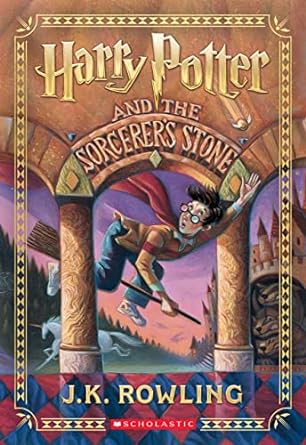
ICYMI: When Harry Potter turns 11, he learns he’s actually a wizard and begins a new life at Hogwarts School of Witchcraft and Wizardry.
Why it’s been challenged
This series topped banned book lists in the nineties and early 2000s and still gets plenty of challenges today. Protestors have accused it of promoting witchcraft, paganism, and mysticism, along with inappropriate language and overly dark content.
Why kids should read it
Yes, we have major concerns over J.K. Rowling’s ongoing anti-transgender commentary. But we’ve also seen generations of kids fall in love with reading from devouring this series.
Buy it: Harry Potter and the Sorcerer’s Stone on Amazon
26. Melissa (Previously Published as George) by Alex Gino

Everyone else knows Melissa as a boy called George. She knows who she really is, and she knows she wants to play Charlotte in the school production of Charlotte’s Web, but she feels like she has to hide herself from everyone around her. Her best friend helps her make a plan.
Why it’s been challenged
As with many stories of transgender youth, challengers oppose the themes of gender identity.
Why kids should read it
This hopeful story of what it’s like to come out as a trans school-age kid is equally important for affirming kids’ experiences and building empathy for the experiences of others.
Buy it: Melissa on Amazon
27. Indian No More by Charlene Willing McManis and Traci Sorell
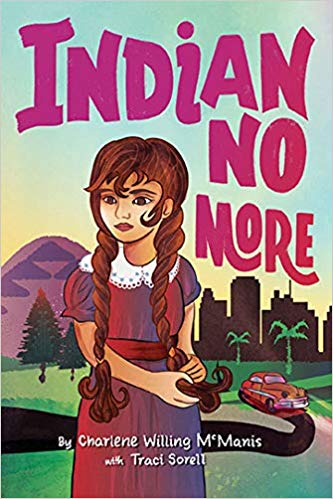
When the government signs a bill that ends her family’s tribal status, Regina is suddenly “Indian No More.” Her family signs up for the Indian Relocation Program and must adjust to an entirely different—and uncertain—life in Los Angeles.
Why it’s been challenged
Critics don’t like its portrayal of racism, and in some cases, inclusion of a racial slur in the text.
Why kids should read it
Set in the 1950s, author Charlene McManis’s own experiences inspired the story. It builds readers’ knowledge about a lesser-known aspect of history. It’s an ideal complement to social studies units about indigenous cultures and experiences.
Buy it: Indian No More on Amazon
28. Front Desk by Kelly Yang
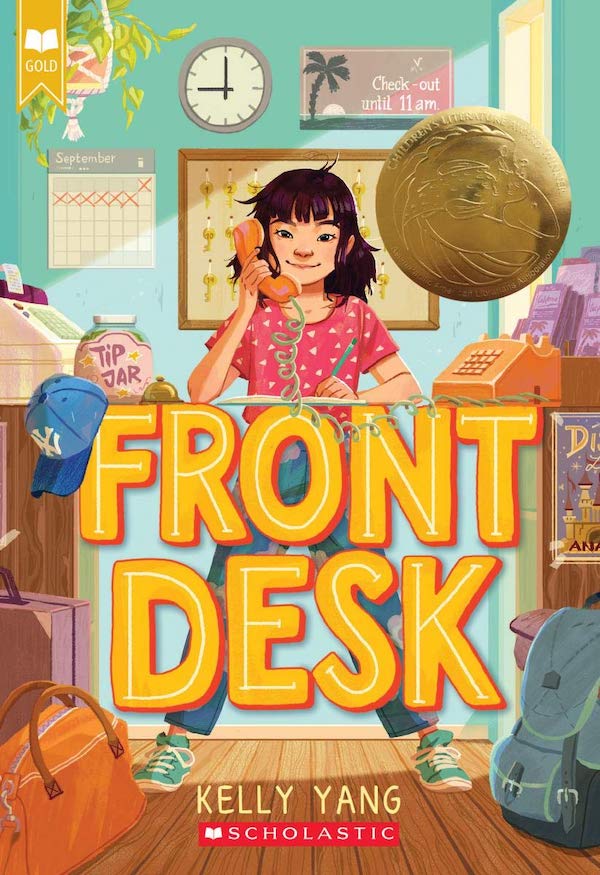
This series opener stars Mia Tang, who dreams of being a writer. Her parents manage a motel, where the family also lives. They routinely risk their jobs to help other Chinese immigrants.
Why it’s been challenged
Parents raised concerns that this book promotes critical race theory and has anti-police sentiments.
Why kids should read it
This real and engaging story gives kids a glimpse into one family’s life as immigrants and business operators. The themes of perseverance, resilience, and empathy are important. Plus, this book introduces them to a fantastic middle grade author and can encourage them to explore her many other outstanding novels.
Buy it: Front Desk on Amazon
29. The Parker Inheritance by Varian Johnson
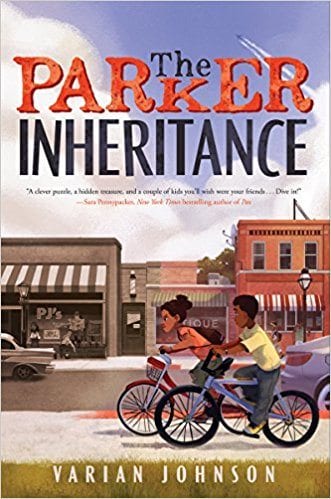
When Candice finds an old letter addressed to her grandmother, she stumbles into a family mystery that takes her back to a turbulent time in history.
Why it’s been challenged
Critics think the themes related to racism and plot details about a gay parent aren’t appropriate.
Why kids should read it
This book has wide appeal as a book club read, an independent read, or a class read-aloud. It has tons of discussion possibilities about both history and the lives and challenges of kids today.
Buy it: The Parker Inheritance on Amazon
30. Hatchet by Gary Paulsen
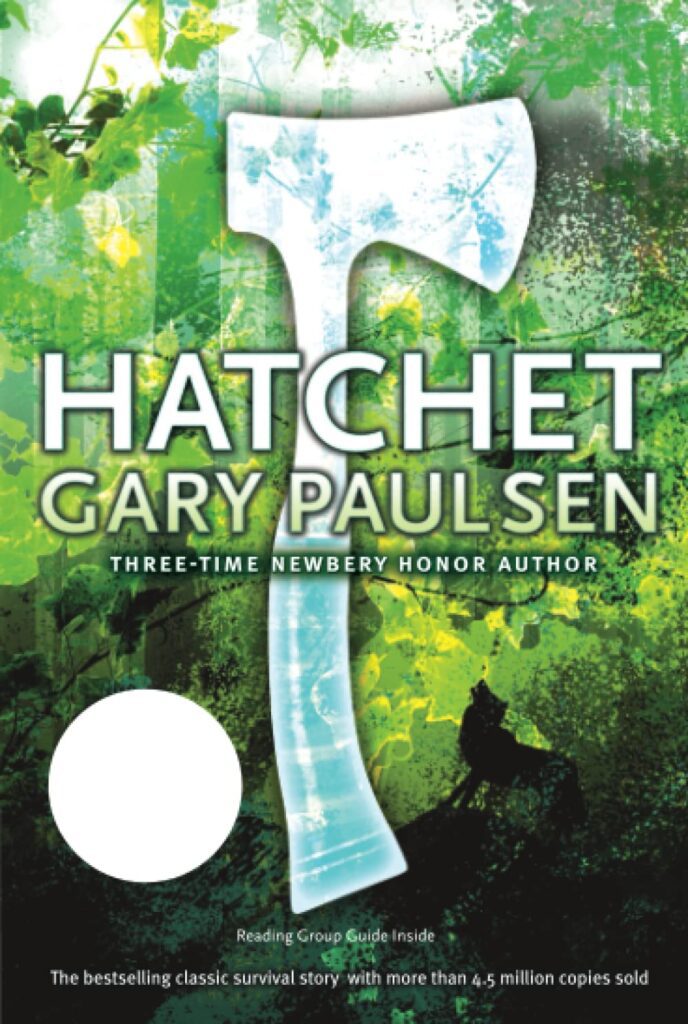
While Brian travels to visit his dad (for the first time since his parents’ divorce), his plane crashes and the pilot dies. Left alone in the wilderness, Brian figures out how to survive until he’s rescued.
Why it’s been challenged
Some parents are uncomfortable with the traumatic experiences Brian faces.
Why kids should read it
This is a classic middle grade novel about resilience and courage. It can encourage kids to explore other survival stories, too.
Buy it: Hatchet on Amazon
Which banned children’s books did we miss? Share your favorites in our We Are Teachers HELPLINE group on Facebook.
For more articles like this, be sure to subscribe to our newsletters to find out when they’re posted!
